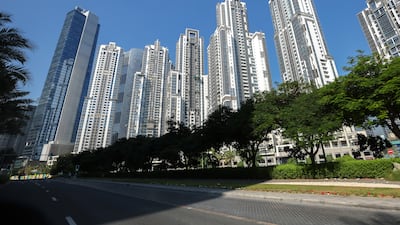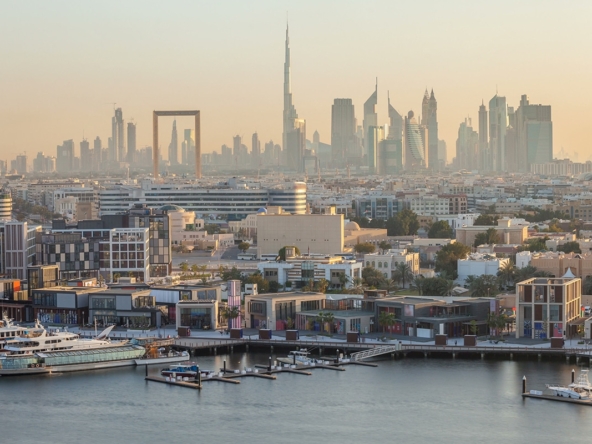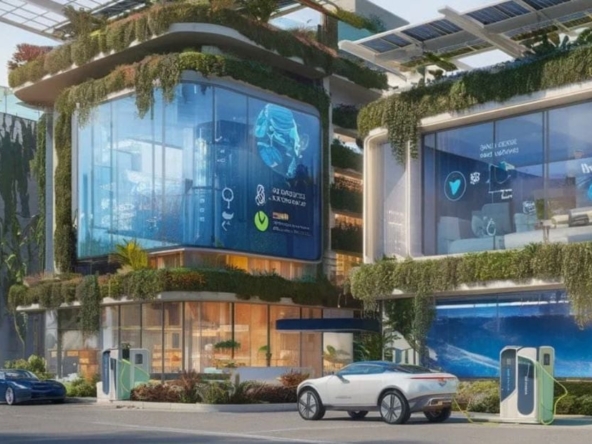Demand for houses in Dubai continues to surge, driving up prices in the market, with the number of properties worth $1 million growing rapidly, a new report has found.
House prices in Dubai are currently 19.9 per cent higher than at the same time last year and are expected to rise by an additional 8 per cent next year, real estate consultancy Knight Frank said in its Dubai Residential Market Review report on Wednesday.
Prices “continue to be fuelled by relentless demand”, said Faisal Durrani, partner and head of research, Mena at Knight Frank. “Of the 530,000 homes sold since 2002, our analysis shows that 95,000 are worth over $1 million today, which equates to a combined total value of Dh822 billion ($223.8 billion).
“What is astonishing however is the rate at which the number of homes valued at over $1 million has grown in Dubai, jumping from just 6.3 per cent of all sales in 2020 to 18.1 per cent today. This effectively means nearly 1 in every five homes in Dubai is worth over $1 million,” Mr Durrani said.
The total value of all homes sold in Dubai since 2002 now stands at Dh1.47 trillion, a 221 per cent increase since 2020, the report said.
Knight Frank also tracked the value of each home’s price over time, identifying “accidental millionaires” – owners who purchased properties for less than $1 million that are now worth more “purely due to price inflation”. Only units that have not traded hands were included.
Overall, Dubai’s residential market is continuing to grow, with the number of transactions up 41.8 per cent annually, reaching a record 47,269 in the third quarter of this year, the highest quarterly figure on record, the report said.
In the first nine months of this year, 121,978 home sales were registered, surpassing the total number of transactions recorded for the whole of last year. The total value of deals between January and September reached Dh306.3 billion, marking a 36 per cent annual increase, having hit a high of Dh116.8 billion in the third quarter.

“Prices in the mainstream market continue to edge upwards, climbing by 4.3 per cent in Q3, taking citywide prices up by 19.9 per cent on this time last year, underpinned in part by the tapering off in the number of homes available for sale,” Mr Durrani said.
“Across the city, there has been a 30 per cent year-on-year decline in the number of property listings.”
In particular, demand for luxury homes has surged, with sales tripling over the past 18 months to almost one in every five homes listed being sold between June and September, he added.
Dubai’s property market continues to perform strongly, driven by new government initiatives such as residency permits for retirees and remote workers, as well as overall economic growth.
Average prices in the Dubai residential market rose by about 20 per cent in the third quarter compared to the previous year, with a 19 per cent increase in average apartment prices and a 23 per cent rise in average villa prices, a report by CBRE found.
In the nine months to September 2024, the total number of residential transactions in Dubai exceeded 125,000, marking a 36 per cent increase compared to the same period last year. Meanwhile, the total value of deals rose 34 per cent annually to Dh314 billion, the report said.
Supply is also increasing to meet demand: close to 300,000 homes are set to be delivered across Dubai by the end of 2029, according to Knight Frank. Apartments will account for 80.1 per cent of that supply, it said.
Knight Frank expects the villa shortage to persist, with just 8,900 new villas expected by the end of 2024 and a further 19,700 by the end of 2025.

“The limited availability of sites across key locations in the city is also contributing to rising prices for off-plan homes, while stock in the secondary market too is experiencing significant price growth, especially where older homes have been refurbished,” said Petri Mannila, partner – head of prime residential UAE at Knight Frank.
“While it may appear that there is likely to be a slight shortfall in the supply needed to house Dubai’s growing population, the lack of development sites and homes for sale, either off-plan, or ready, is going to continue creating a bigger delta between the city’s prime neighbourhoods and the rest of Dubai.”
The key risks to the market include a global economic slowdown, which would have a knock-on effect on the real estate market, oil price volatility as well as regional competition, the report said.
Looking ahead, while prices will continue to rise, the rate of growth is expected to begin slowing next year after almost five full years of growth, Mr Durrani said.
For Dubai’s prime residential market, growth in 2025 is forecast “to be more modest and closer to 5 per cent, which builds on the 44.4 per cent growth registered during 2022 and the 16.3 per cent increase last year”, he added.
Sources...



